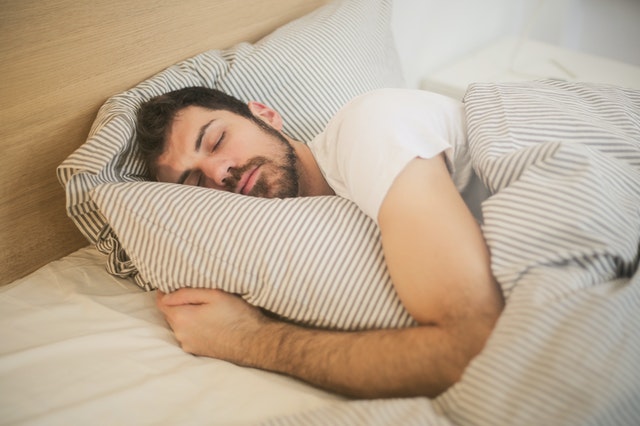Amidst the growing obesity epidemic, learning how to manage body weight has become increasingly important.
In a recent study published in JAMA Internal Medicine, colleagues from the University of Chicago and University of Wisconsin-Madison showed that getting more sleep may help decrease caloric intake; researchers are hopeful this finding will help in creating weight loss programs.1
Loss of sleep can increase appetite
Dr. Esra Tasali is the Director of the UChicago Sleep Center at the University of Chicago and co-author of this study.
Her previous research has shown that restricting sleep can impact appetite regulation and lead to increased caloric intake, which “puts you at risk for weight gain over time,” she said.2
Tasali’s new study examines if extending sleep duration, rather than restricting it, could reverse this effect on appetite.
Participants were already overweight and lacked sleep
The study observed a total of 80 adults classified as “overweight”, with a body mass index (BMI) between 25.0 and 29.9.1 The participants had a regular sleep schedule consisting of less than six and a half hours of sleep each night.
Participants were between the ages of 21 and 40.
The study sample, then, did not account for underweight individuals, or those already at a healthy weight.
Participants were able to continue with their daily routines
The study was conducted between November 1, 2014 and October 30, 2020.
Participants were monitored for two weeks while they continued with their normal sleep patterns. Following the two weeks, the “sleep extension” group was provided with a type of sleep counseling, which provided information on sleep hygiene and encouraged them to extend their nightly sleep duration to 8.5 hours.
A control group was included in the study. They continued their habitual sleep pattern for the duration of the study without counseling. The overall duration of the observation for both groups was four weeks.
No change to diet or physical activity was prescribed for the participants.
This study was unique because participants were able to continue with their daily routines. Many other studies examine participants in laboratory settings, which can skew the results.
Dr. Esra Tasali commented, “We simply coached each individual on good sleep hygiene, and discussed their own personal sleep environments, providing tailored advice on changes they could make to improve their sleep duration.” She later noted that “limiting the use of electronic devices before bedtime appeared as a key intervention.”2
To measure caloric intake, the investigators utilized something called “doubly labeled water”.
Participants were asked to drink this water which contains detectable isotopes – different versions – of hydrogen and oxygen. Using urine tests, this water can help researchers measure caloric intake.
Those who slept more, ate less calories
The study measured the change in energy intake for both groups before and after the testing phase.
Those in the sleep extension group extended their sleep duration by an average of 1.2 hours nightly.1 They also decreased their energy intake by 270.4 calories per day. These results were statistically significant.
The researchers calculated that an hour increase in sleep duration correlated to a 162 calorie decrease in energy consumption per day.
“Within just two weeks, we have quantified evidence showing a decrease in caloric intake and a negative energy balance — caloric intake is less than calories burned.
If healthy sleep habits are maintained over longer duration, this would lead to clinically important weight loss over time. Many people are working hard to find ways to decrease their caloric intake to lose weight — well, just by sleeping more, you may be able to reduce it substantially,” Dr. Esra Tasali noted.2
There was no statistically significant difference in these results when comparing men versus women.1
Increasing sleep may be a useful tool for weight loss
Later studies will need to examine the underlying mechanisms that relate sleep and appetite regulation.
Using larger study groups may help determine how sleep can be combined with other lifestyle changes to build effective weight loss programs.
References
- Tasali, E. et al. (2022). Effect of Sleep Extension on Objectively Assessed Energy Intake Among Adults With Overweight in Real-life Settings. JAMA Internal Medicine. Doi: 10.1001/jamainternmed.2021.8098.
- Caldwell, A. (2022). Getting more sleep reduces caloric intake, a game changer for weight loss programs. EurekAlert! Accessed on Feb. 7 2022. Retrieved from https://www.eurekalert.org/news-releases/942359.
Photo by Andrea Piacquadio from Pexels



